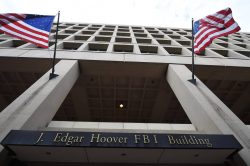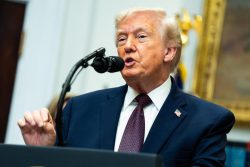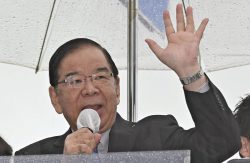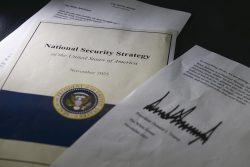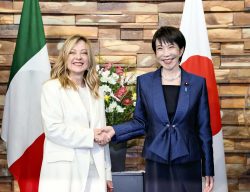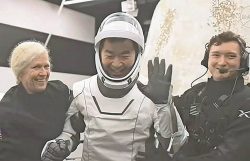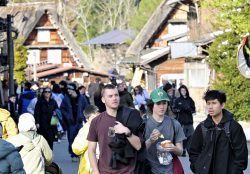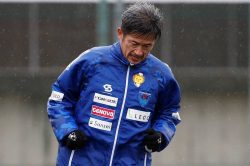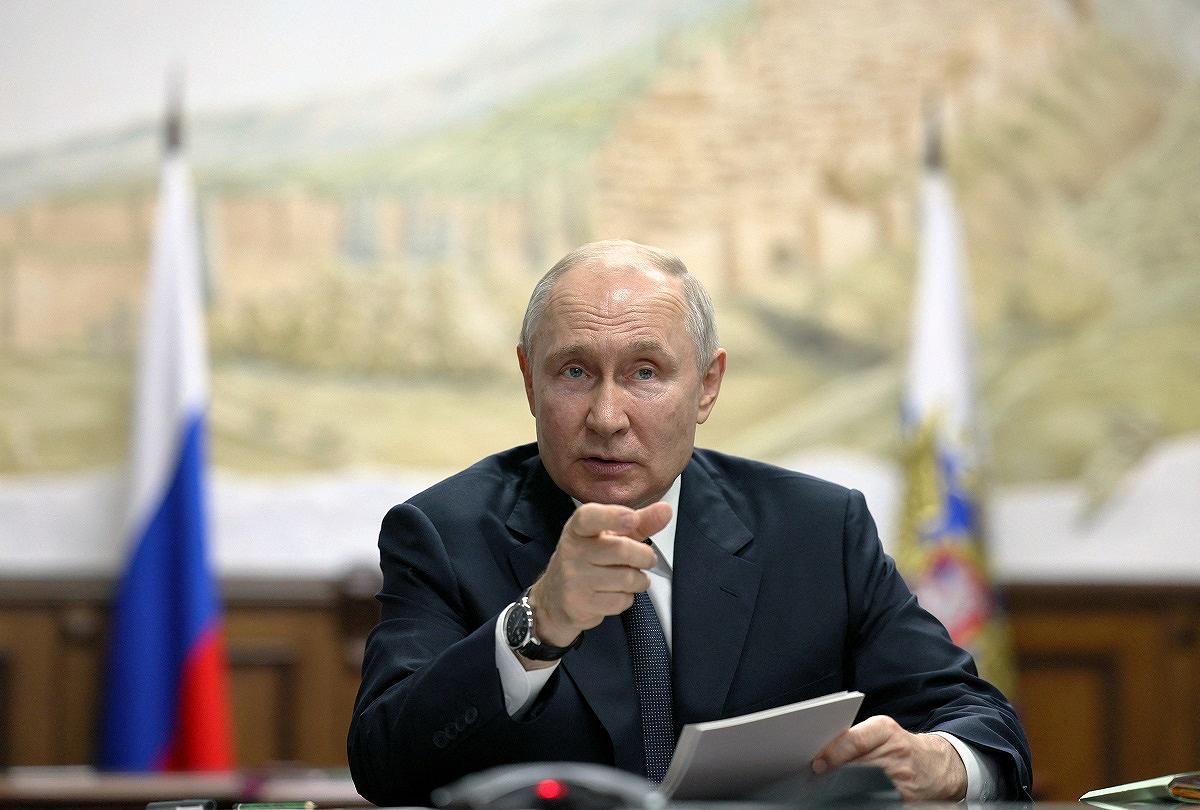
Russian President Vladimir Putin chairs a meeting dedicated to tourism development in Derbent in the southern region of Dagestan, Russia, June 28, 2023.
16:38 JST, June 29, 2023
Over the past decade, President Vladimir Putin has won friends and admirers worldwide as the embodiment of a strongman, using military interventions in the Middle East and Africa to restore Russia’s role as a world power and promoting himself as an authoritarian alternative to the United States and the West.
The weekend mutiny by the Wagner Group and its chaotic aftermath have jeopardized that image, jolting many assumptions about Putin’s autocratic credentials, Russia’s stability and the likely course of the war in Ukraine.
With events continuing to unfold, it is still too early to tell how badly Putin has been weakened, analysts caution. The Wagner Group could be dismantled and its leader, Yevgeniy Prigozhin, now in exile in neighboring Belarus, could end up detained or killed. Putin may yet launch a broad crackdown against all his critics that could leave him more firmly in control than he was before.
But the Russian leader’s failure so far to take a tough stance against the mercenaries, or punish those involved in the mutiny, is denting the cultivated image that he always controls events – something the Kremlin projected to the wider world, as well as in Russia, said Dmitri Alperovitch, a foreign-policy analyst who heads the Silverado Policy Accelerator think tank.
“This is shocking to dictators because this is not how they would put down a mutiny,” he said. “Many of Putin’s supporters are quite confused and wondering about his ability to be the strong leader and strong authoritarian dictator he portrays himself to be.”
Despite U.S. efforts to rally international support for Ukraine’s efforts to fight off the invasion, a majority of countries, notably in the Global South, have refrained from taking measures against Russia, professing neutrality while trying to balance relations between Moscow and Washington.
But Putin has started to look more isolated than he was before the revolt. In the days since the mutiny, just eight world leaders have spoken with him by telephone, including those of Turkey, Iran and Qatar, Saudi Arabia, Bahrain and three Central Asian neighbors, according to readouts from the Kremlin and the countries involved. “Numerous” others have called to express their solidarity, Russian Foreign Minister Sergei Lavrov told a Russian TV channel – but, he added, they have asked for their calls not to be publicized.
Conspicuous among those who haven’t phoned Putin in recent days is Chinese leader Xi Jinping, who once called Putin his “best, most intimate friend” and counts as Russia’s most powerful and important ally. The only comment from China’s Foreign Ministry – that the rebellion was an “internal affair” – unusually put China on the same page as Washington and other Western capitals that have used the same language to maintain distance from the upheaval, noted John Culver, a former CIA analyst focused on China.
China is too locked into an adversarial relationship with the United States to abandon Russia, a pillar in Xi’s efforts to advance an authoritarian alternative to America’s global influence, he said. But Beijing is likely to have been unnerved by the realization that Putin’s Russia, which shares a 2,600-mile border with China, is more unstable than had been realized and that Putin’s hold on power may be shaky.
“Betting on Putin, who Xi called his best friend, hasn’t been going too well,” he said. “They saw him as their one real partner in this contest with the U.S.”
The upheaval is unlikely to prompt any immediate policy changes for most countries in the world that have declined to join the Western alliance against Ukraine, said Elizabeth Shackelford, a former U.S. diplomat who is now with the Chicago Council on Global Affairs. But it may force a more assertive push for a negotiated solution acceptable to Ukraine and its allies, from China or from countries in Africa, where most leaders have remained favorably inclined toward Putin.
The presence of Wagner mercenaries in several African countries puts Africa at the heart of the rivalries unfolding in Russia and Africans have suffered disproportionately from the food and fuel inflation triggered by the war in Ukraine. An early test of how other leaders continue to view Putin will come in July, when he is scheduled to host a second summit of African leaders in Saint Petersburg. The first, held last October, was attended by 45 African heads of state.
Among the assumptions undermined by the events of recent days is that Putin is incapable of compromise, something cast into doubt by his seeming readiness to strike a deal with Wagner, Shackelford said. Although the precise details remain a mystery, “clearly he cut a deal of some sort,” she said. “What does this say about Putin’s willingness to negotiate an end to the war? He’s got to be feeling weakened and the question is: Does this make him more amenable to some kind of negotiation?”
“If Putin starts to look like an unreliable bet,” Shackelford added, “those countries that have influence with him could start to try to look for exit strategies more seriously than in the past.”
Putin has given no indication that his position on Ukraine has softened or that he even recognizes that the toll of the war endangers his regime, said Alexander Gabuev, director of the Carnegie Russia Eurasia Center. Prigozhin gave voice to the grievances of many ordinary Russians when he cited the war’s failures as one of the reasons for his decision to march on Moscow, he said.
Russia’s allies, which have allowed the Kremlin to circumvent Western sanctions and export Russian commodities, have additional leverage to exact better deals for themselves from a leader they believe is weaker, Gabuev said.
But at the same time, he added, “Putin has survived. It shows that no one in Russia is really ready to challenge Mr. Putin.”
For how long is now in question, however, Shackleford said. Also in doubt is the notion that Putin can afford to dig in for a long war, in the expectation that Western support for Ukraine will eventually wane in the face of rising costs and political demands. Instead, it is Putin who has proved vulnerable to the toll the war is taking on ordinary Russians, who did not rush to support Prigozhin’s revolt but also did not stand up against it.
“The idea that this is about Putin outlasting the West or the West outlasting Putin – that is no longer the question,” Shackelford said. “The question now is: Is Putin’s biggest battle not with the West, but with his own people?”
"News Services" POPULAR ARTICLE
-

Japan’s Princess Kako Marks 31st Birthday, Contributed to Key Events This Year
-

Arctic Sees Unprecedented Heat as Climate Impacts Cascade
-
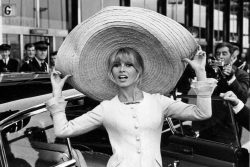
Brigitte Bardot, 1960s Sultry sex Symbol Turned Militant Animal Rights Activist Dies at 91
-
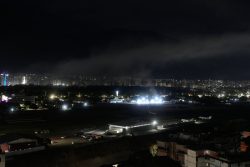
At Least 7 Explosions and Low-Flying Aircraft Are Heard in Venezuela’s Caracas
-
◎竹増ローソン社長インタビュー〔1〕_20251228YGTGS000198_C-250x166.jpg)
Convenience Store Chain Lawson May Start OTC Drug Delivery in 2026
JN ACCESS RANKING
-

Japan Govt Adopts Measures to Curb Mega Solar Power Plant Projects Amid Environmental Concerns
-

Core Inflation in Tokyo Slows in December but Stays above BOJ Target
-

Major Japan Firms’ Average Winter Bonus Tops ¥1 Mil.
-

Bank of Japan Considered U.S. Tariffs, Coming Shunto Wage Hike Talks in Its Decision to Raise Interest Rates
-

Tokyo Zoo Wolf Believed to Have Used Vegetation Growing on Wall to Climb, Escape; Animal Living Happily after Recapture


